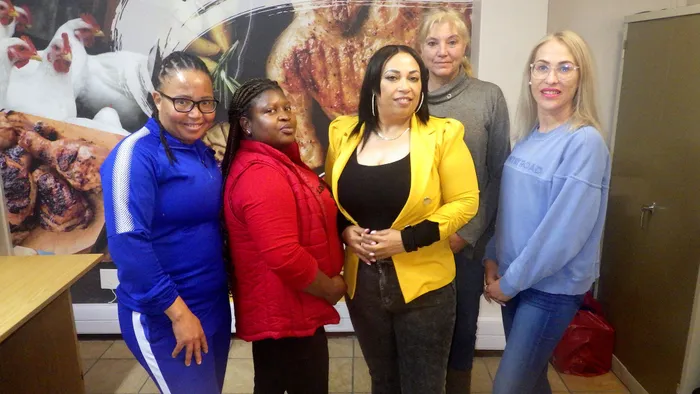#WomensMonth: Breaking poultry industry’s glass ceiling

Shirlene Arends (in yellow) with her team of right-hand women at Supreme Botshabelo. Picture: Supplied.
Johannesburg - Commercial agriculture is still very much a man’s world, even in 2023, and while many women are active in small-scale farming, the fairer sex is not a common sight in executive positions.
Shirlene Arends of Country Bird Holdings (CBH) is the exception that proves the rule. Running an abattoir for one of SA’s biggest poultry companies is a demanding job, and for three decades, Arends has liked to challenge the glass ceiling in this male-dominated industry.
As general manager of Supreme’s Botshabelo Abattoir for the past 12 years, she manages a team of 1 006 and a facility that processes 125 000 chickens every day, five days a week – a whopping 2.5 million birds monthly.
Growing up in the small Eastern Cape town of Stutterheim, the second eldest of four children, Arends expected to become a teacher.
“We didn’t have many options, so I felt that was my destiny,” she says. But destiny had other plans, and after a few starter jobs, she landed a position at Anca Poultry in 1996, selling live chickens. She was 22, and immediately fell in love with the dynamic poultry industry. When the company built its own abattoir, she became its manager. It was with nine years of experience under her belt in 2005 that she left the Eastern Cape for a job as production manager at CBH’s Supreme Poultry division. Six years in, she was promoted to her current position at the helm of the company’s key processing facility in Botshabelo.
While she may be one of few women in such a senior role in poultry, Arends is an easy going, accomplished manager who leads her team, including senior male subordinates, with confidence.
She doesn’t over-think gender politics, but is well aware that she has the power to help change stereotypes and create a more diverse and equal working environment. A single mother of two sons, now in their 20s, she has proved that motherhood is no obstacle to successful leadership.
“People assume women prioritise their families over their work more than men, and therefore they’re marginalised in organisations. However, in my experience, especially in South African households, most woman are the breadwinners, and are just as competent and focused on their work as men. Managing them shouldn’t be any different. It’s about having clear goals and values, setting the pace and ensuring everyone is accountable for what they’re employed to do.”
Arends is of the opinion that her industry benefits from female employees.
“Women are often more methodical and more detail-oriented, which is ideal in the ever-improving world of food- safety standards. Also, because women tend to be the nurturers who feed their families, there is a base understanding, which makes new-product development a delight.”
A firm believer in upskilling, Arends is busy with a post-graduate qualification in business administration to add to her management and leadership degree and multiple diplomas.
“We live in a volatile, complex and ambiguous world, and if you don’t want to become obsolete, you have to commit to personal development,” she says.
Her advice to young women starting out today would be to embrace growth without fear. “Don’t be afraid to fail – you learn from your mistakes, but you also learn from others. Make sure you love what you do and that you research the company you apply to thoroughly, because you’ll spend most of your time at work.”
Related Topics: